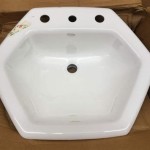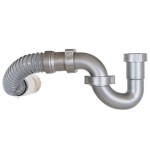Can I Use Regular Ceiling Paint in the Bathroom?
The bathroom, with its high humidity and frequent moisture exposure, presents unique challenges for paint selection. While regular ceiling paint might seem like a convenient and cost-effective option, its suitability for this environment is a common question. This article will explore the factors to consider when choosing paint for your bathroom ceiling, specifically addressing the use of regular ceiling paint and its potential drawbacks.
Understanding Bathroom Paint Requirements
Bathrooms require paint that can withstand the constant presence of moisture and steam. Regular ceiling paint, typically designed for dry interior spaces, lacks the necessary properties to thrive in this environment. It may not resist mildew growth, peeling, or discoloration, ultimately leading to a less-than-ideal finish and potentially compromising the longevity of the paint job.
The Downsides of Regular Ceiling Paint in Bathrooms
Using regular ceiling paint in the bathroom can result in a number of issues, including:
Mildew Formation
High humidity levels in bathrooms create an ideal breeding ground for mildew, a type of fungus that thrives in damp environments. Regular ceiling paint, with its lack of mildew-resistant properties, is susceptible to mildew growth, leaving unsightly dark spots on the ceiling. This can be difficult to remove and may require repainting the entire ceiling.
Peeling and Cracking
The constant exposure to moisture can cause regular ceiling paint to peel and crack. This is due to the paint's inability to expand and contract with changes in humidity, leading to stress on the paint film. This can create an unattractive appearance and necessitate costly repairs or repainting.
Discoloration
The combination of moisture and steam can cause regular ceiling paint to discolor over time. This discoloration can range from subtle yellowing to more pronounced color changes, affecting the overall aesthetic appeal of the bathroom.
Choosing the Right Paint for Your Bathroom Ceiling
To ensure a durable and attractive finish in your bathroom, choosing the right paint is crucial. Here are some factors to consider:
Moisture Resistance
Look for paint specifically formulated for high-moisture environments, such as bathrooms and kitchens. These paints are designed to resist mildew growth and withstand the constant presence of steam.
Durability
Select paints with high scrubbability and durability to withstand frequent cleaning and resist damage from everyday bathroom use.
Mold and Mildew Resistance
Choose paints containing mildewcide additives to actively inhibit the growth of mold and mildew, preventing these unsightly blemishes from forming.
Color and Finish
Consider your bathroom's overall design and choose a color and finish that complements the existing decor. Matte or satin finishes are generally preferred for bathroom ceilings as they tend to hide imperfections and provide a more subtle look.
By carefully considering these factors and selecting the appropriate paint, you can ensure a beautiful and long-lasting finish for your bathroom ceiling.

Ceiling Paint For Bathroom Prestige Painting Gta

Should I Use Flat Paint In A Bathroom Williams Painting

Ceiling Paint For Bathroom Home Painters Toronto

25 Beautiful Bathroom Ceiling Ideas

Best Paint For Steamy Bathroom Ceiling Eco Inc

Painting The Ceiling In A Bathroom Home Painters Toronto

Best Paint For Steamy Bathroom Ceiling Eco Inc

Painting A Bathroom Ceiling

Adding Color And Trim To A Bathroom Ceiling Young House Love

Ceiling Paint For Bathroom Prestige Painting Gta
Related Posts







